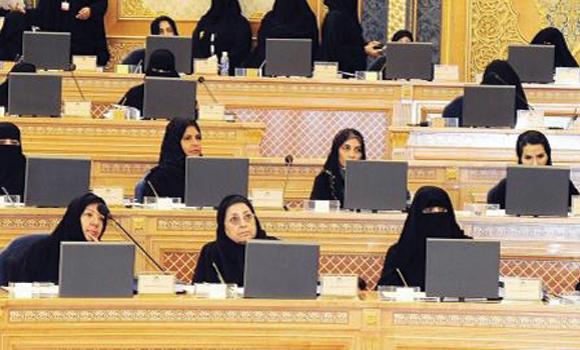
Jeddah, Feb 25: Thirty women Shoura members took part in the discussions of the Saudi consultative body for the first time yesterday. “It was a historic day for Saudi women,” said one female member. The meeting appointed three women as deputy chairpersons of subsidiary panels.
Zainab Abutaleb said yesterday’s Shoura session that began at 10 a.m. was well organized, adding that it discussed a number of important topics. At the outset of the meeting, Shoura President Abdullah Al-Asheikh spoke about how the council works. There was a documentary on the participation and voting of members.
Forms were distributed among the members giving them an opportunity to pick three committees they intend to work with. “Shoura is an integrated system and its discussions are free and fair,” said Abutaleb, who has been named deputy chairperson of the Cultural and Media Committee.
Asked why women members were not asking for a separate committee, she said: “Female members have been appointed to different committees to take up issues of women.”
Six women members have been appointed to the Social, Family and Youth Committee. They are Hamda bint Khalaf Al-Anazi, Noura bint Abdullah Al-Asqa, Noura bint Abdullah Al-Odwan, Hiba bint Abdul Aziz Al-Munie, Fatma bint Muhammad Al-Qarni and Princess Sara bint Faisal.
There are two women in the Management and Human Resource Committee. Lubna Al-Ansari is deputy chairperson of the Health and Environment Affairs Committee while Thuraya Obaid is deputy chairperson of the Human Rights Committee.





Comments
Add new comment